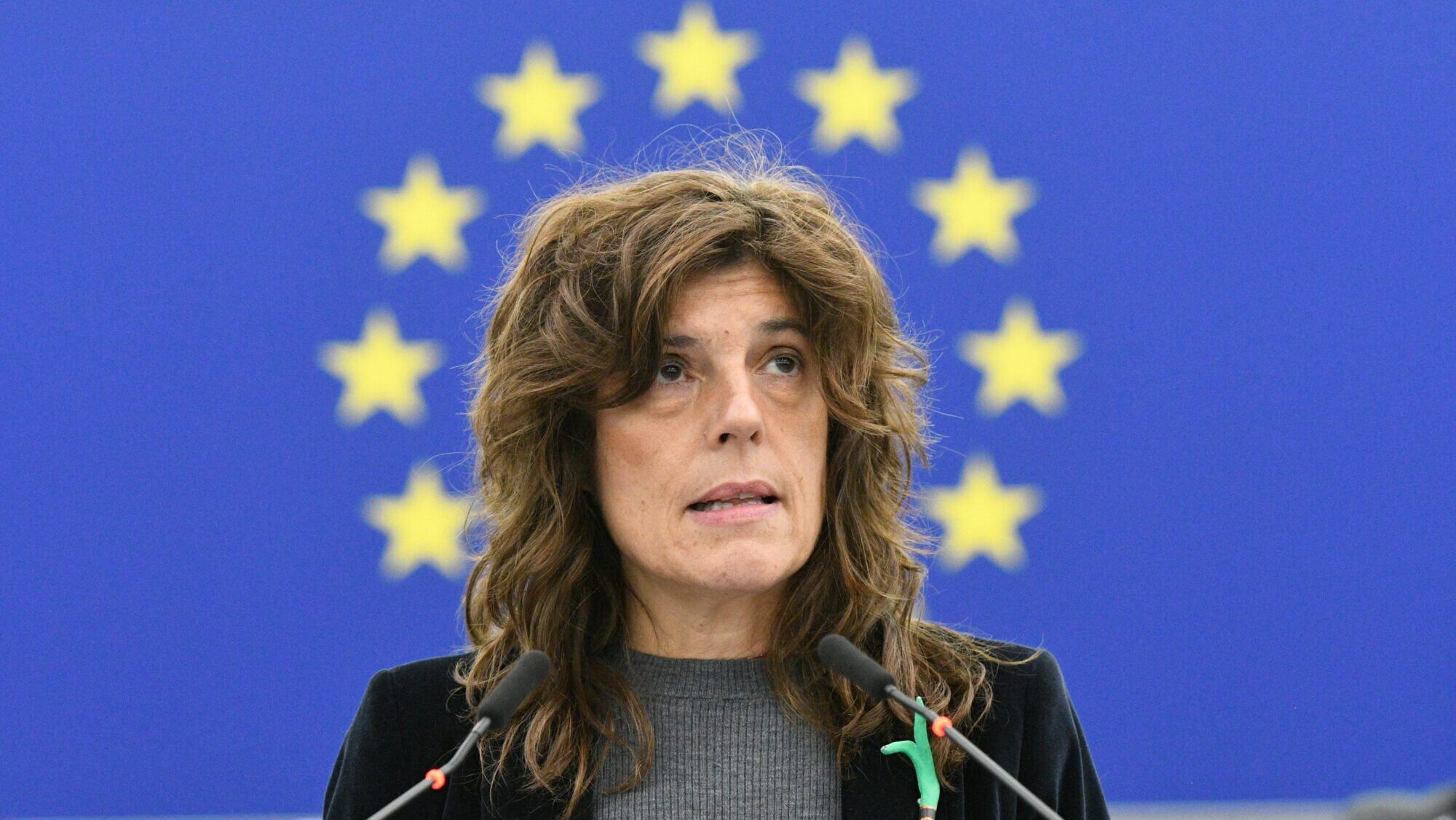
Spanish Secretary of State for Foreign Affairs Ángeles Moreno Bao
Photo: Geneviève ENGEL ©European Union 2023 – Source: EP
In a plenary session in Strasbourg on Wednesday, November 2nd, MEPs locked horns in a heated debate on Spain’s draft amnesty law. The law, if passed, would see Catalan separatists granted amnesty in exchange for the Catalan separatist party Junts per Catalunya giving its votes to Sánchez, allowing him to serve another four-year term as prime minister.
The debate, titled “Threat to the rule of law as a consequence of the government agreement in Spain” comes after the Spanish MEP Dolors Montserrat (EPP), presented a petition to the European Parliament earlier this month to have the draft amnesty law discussed on the floor of the chamber.
While senior officials in the Sánchez government and left-liberal MEPs defended the draft law’s legality, right-of-center MEPs argued that Sánchez and his socialist allies through the amnesty law are dispensing with the rule of law.
In the debate’s opening remarks, Ángeles Moreno Bau, who has served as the secretary of state for foreign affairs in Sánchez’s government since 2011, told the chamber that she defended the legality of the draft bill, which she said is “unequivocally an internal Spanish constitutional matter.”
“This is a national issue and when we’re discussing national matters here in this house, it can sometimes undermine our values. Questioning national laws can undermine European values,” she added before insisting that the draft bill “already expressly safeguards European norms and values.”
Only a day earlier, globalist MEPs had urged the Commission to keep withholding EU funds from Hungary over alleged ‘rule of law’ violations which, in that case, were not deemed to constitute “national issues.”
Spanish MEP Iratxe García, a Sánchez ally who leads the Progressive Alliance of Socialists and Democrats in the European Parliament claimed that “there is no greater attack on the rule of law than the alliance of the PP with the extreme right.”
The first, and perhaps the sharpest, criticism leveled against Sánchez’s draft amnesty bill came from VOX MEP Jorge Buxadé, who described it as “an arbitrary, undemocratic act, and a coup d’état.” He drew attention to the fact that Sánchez had even “changed the senior lawyer of Congress so as to make an ad hoc report” on the draft legislation. “Stalin would be proud of Sánchez, we despise him,” Buxadé added.
Partido Popular MEP Dolors Monserrat argued that “the pact between Sánchez and a fugitive from justice” that enables Sánchez to “obtain the seven votes that allow him to govern and Puigdemont to achieve amnesty” amounted to nothing less than the “dismantling of democracy in Spain.”
Commissioner for Justice Didier Reynders, for his part, affirmed that the Commission (EC) would analyze the amnesty law “carefully, independently, and objectively” to determine whether it complies with the legislation and fundamental values of the EU.
He assured the chamber that “the Commission will follow this issue very closely,” and added that although “the Commission maintains its long-standing position” that “the issue of Catalonia remains an internal matter of Spain,” it would be examining the proposed law while remaining in close contact with the Spanish government.
Reynder highlighted that the Commission had received complaints from “a large number of citizens and stakeholders” who expressed worry over whether the draft legislation and the “special committees of the parliament” it envisions adhere to the core principles of the European Union.”
Also present in Strasbourg on Wednesday, November 22nd, Santiago Abascal, the leader of Spain’s national-conservative VOX party, told reporters: “We hope, we trust, and we demand that the European Commission acts and takes the side of the Spanish people and legality.”
Abascal added that he trusts the Commission to “at least act with the same diligence that it has acted with toward other nations that were not breaking their own laws, that were acting in accordance with their constitutions and their sovereignty, as in the case of Poland and Hungary.”
A day earlier, globalist MEPs in Strasbourg called on the Commission to not release EU funds owed to Hungary that have been withheld over alleged ‘rule of law’ violations.
“Rule-of-law principles are not for sale, they are non-negotiable and cannot serve as a bargaining chip,” said EPP MEP Jeroen Lenaers, who insisted Hungary needed to make additional reforms to unlock the funds. “Only significant, tangible, and lasting reforms can enable the release of taxpayers money,” he said.
Hungarian MEP Balázs Hidvéghi promptly responded, accusing Brussels of blackmailing Budapest by refusing to release the funds. “The objective never was to reach an agreement, this is pure blackmail,” he said.
